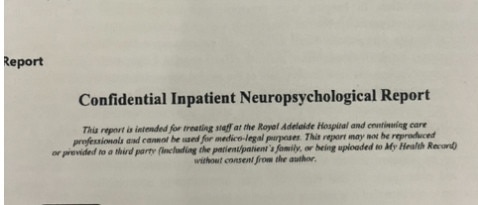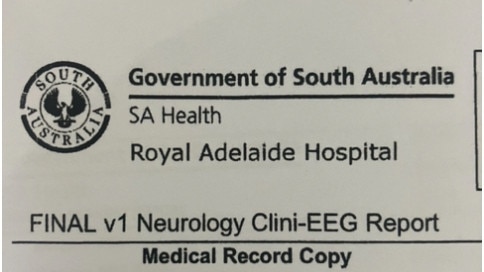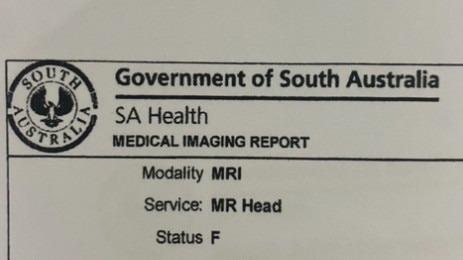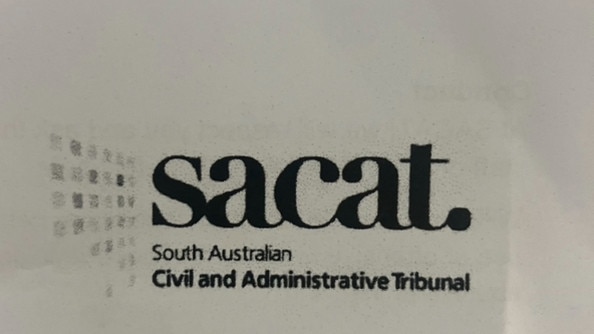SACAT send out deeply personal details of another person in error, man who received files ‘appalled’
Psychosis, sexual history, medications and more – a man’s most intimate details were sent to the wrong name and address by mistake, to the shock of the stranger who opened the mail.
SA News
Don't miss out on the headlines from SA News. Followed categories will be added to My News.
Confidential medical and legal documents were posted to the wrong person by mistake, detailing the deeply personal psychiatric records as well as sexual and medical history of a total stranger.
When the recipient alerted authorities to the blunder he was told to “shred and forget” the documents in an attempted cover-up.
The man was appalled to receive the large package of documents and has provided the documents to The Advertiser in heavily redacted form, removing any identifying information, in the hope of triggering action to prevent a recurrence of such an appalling mistake.
The man was bewildered to find documents in a package mailed to his mother from the South Australian Civil and Administrative Tribunal (SACAT) which detailed a man’s psychiatric problems before realising it was details about a stranger sent by mistake.
The tribunal had the medical information as part of an application for guardianship of the person, which the tribunal handles. SACAT’s process includes sending such information to the person subject to the guardianship application as part of their legal rights – but in this case sent to the wrong person.
Documents including one marked “Confidential Inpatient Neuropsychological Report” detailed the man’s issues such as an eating disorder blamed on him believing Jesus lived in his abdomen and had ordered him to stop eating.



The papers included physical and mental health assessments of the person, MRI, EEG and PET scan reports and the lengthy Confidential Inpatient Neuropsychological Report about the patient’s multiple mental health issues.
This noted the man had “psychosis, paranoid delusions, tactile hallucinations with religious themes.”
It stated he had lost 5-10kg over nine months “as he believed that Jesus had told him to stop eating and he was communicating with Jesus through his abdomen.”
“He described the reason for not eating was Jesus had told him not to eat, though he was not sure why Jesus said this,” it states.
It noted he is a “high falls risk” and includes a lengthy list of medications he is on, but that he was not taking one “due to concern that it is making the devil be involved.”
It detailed his education, his family and marriage history, other medical episodes, driving history, pension situation, living arrangements, intellectual assessment, church life, what he does for relaxation and other personal information.
The man who received the documents contacted the neuropsychologist who made the report for SACAT to alert the doctor it had been sent to his mother by mistake.
“I was told to shred the documents and forget about them,” he said.
“This is too serious a mistake to just forget about – there needs to be action to prevent it ever happening again. It is an outrageous breach of privacy many people would find just devastating.”

A SACAT spokesman said the Tribunal takes its responsibilities very seriously in maintaining confidentiality and was very concerned to learn that information was inadvertently sent to the wrong party.
“Standard protocols for cases like this include identifying the person who has been affected, notifying them the incident has occurred and confirming that the person who has received them has been directed to destroy the documents,” the spokesman said.
“As we have been unable to identify the recipient in this matter, SACAT is publicly requesting the individual to either destroy or return the documents.
“Given the nature of the information handled by SACAT and the need to maintain the integrity of our systems, an investigation is now underway to determine how the error occurred and whether procedures need to be changed in response.
“Staff are also being reminded of their responsibilities in this very important area.”
The man who received the documents was seeking guardianship of his mother diagnosed with dementia, and the documents were included in a psychiatric report on her condition.
While this is a separate issue, it infuriated the man who says the report confirming her dementia would have upset his mother.
He received it because he had her mail diverted to his address.
This report confirmed his mother has dementia, and that she is unable to make reasoned decisions about her accommodation or complex financial/legal affairs.
SACAT’s policy regarding guardianship applications says: “The Tribunal will give the application and supporting medical evidence and submissions to the person before the hearing with a notice of hearing setting out their legal rights.”
However, the man questioned if this policy should extend to people if the psychiatric report deems them suffering dementia.
“She would have been very upset if she had read this report, it is disgraceful they would send a report like this to an elderly woman with dementia,” he said.
“It would have left her upset, anxious and confused. This policy needs to be reviewed.”
He noted such reports may be forgotten or simply discarded by people with dementia.
In response, SACAT says for procedural fairness any psychological reports or other materials must be made available to the protected person who is the subject of the hearing.
“Through the hearing process itself, the Tribunal Member will assess whether the person who is the subject of the application understands what is being said as part of the process of determining the guardianship application,” a spokesman said.





